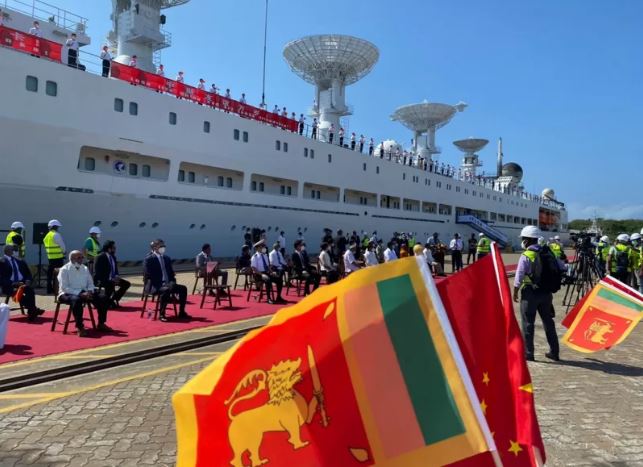Sri Lanka’s recent decision to enact a moratorium on foreign Marine Scientific Research (MSR) vessel visits to the strategically placed island nation in the Indian Ocean Region (IOR), is a short-term solution to what will become a bigger headache in the coming years.
The moratorium essentially buys Sri Lanka some breathing space to navigate around geopolitical rivalry and diplomatic pressure in 2024, which is a crucial year for the island, in terms of economic and political stability, with the possibility of multiple elections on the horizon.
However, Sri Lanka needs to formulate a robust strategy to deal with MSR visit requests, which will likely increase in the coming years, as tensions between India – China – and the United States are likely to continue to complicate situations for the littoral states of the IOR.
India, the United States and others have exerted significant diplomatic pressure on Sri Lanka regarding the high frequency of Chinese MSR visits to the island nation.
Sri Lankan policymakers and those who craft foreign policy, need to fully grasp that China has long-term designs for the IOR, and that Chinese presence in the “Indian Ocean” will only grow in the coming years. China, seems to be borrowing a page from the British Empire, US and Soviet “Cold War” period playbooks, and has begun “patrolling” and seeking basing options for the PLA Navy along its lengthy lines of communication (supply routes).
With a significant tonnage of China’s energy supply, raw materials, and exported goods traversing through the Indian Ocean, China is clearly trying to ensure that its supply chain vulnerabilities are reduced.
While China is now pushing hard to expand its maritime science boundaries and build expertise, the kind of joint research they have collaboratively carried out thus far with local institutions, are yet to deliver significant scientific results which have global implications.
Further, China’s track record of playing by the international rule book when it comes to maritime matters, is problematic. China’s reaction to international law and verdicts about its claim to disputed maritime territories in the South China Sea, paints a poor picture.
In what may be indicative of what’s in store for the future, China recently began to refer to the IOR as the “China-Indian Ocean Region” (CIOR), at a recent conference on “Boosting Sustainable Blue Economy to Build Together a Maritime Community with a Shared Future,” which was held in the Yunnan Province of China, in early December, 2023.
The United States several years ago ‘re-envisaged’ the Indian Ocean as the ‘Indo-Pacific’ to suite its strategic aims. The re-designation of the IOR as China-Indian Ocean Region indicates China’s ambitions, and how it views the world, where a rising China wants to become a “superpower”.
Such re-envisioning of the IOR along with projects like the Belt and Road Initiative (BRI), will see China shift focus towards the Indian Ocean in the coming years.
The Chinese long-range fishing fleet, and MSR’s equipped with unmanned and autonomous systems will increase their visits to the IOR. Already, several Chinese MSR’s have been flagged by some South East Asian countries for operating with their Automatic Ship Identification (AIS) tracking systems shut off, in what is termed as “going dark”, deifying international law.
Further, several such vessels have been accused of deploying autonomous undersea and surface craft to collect scientific data in coastal waters and in the Exclusive Economic Zones (EEZ) of Southeast Asian Countries to collect data, which also have military applications, without the expressed permission of such countries.
As such, Sri Lanka needs to move swiftly to formulate well thought-out foreign policy measures to deal with what could be an escalation of the Chinese inroads to the IOR, though these have been mostly legitimate under international law to date.
It is said that the Government is reviewing its foreign policy, in tandem with a defence review which is also said to be ongoing. With both “reviews” lacking transparency, or Parliamentary oversight, let’s hope that they are actually taking place, with the competent subject matter experts being consulted, and would not end up like many other “reviews” which have in the past only rubber-stamped the ideas which a few politicians and their advisors deem fit for the nation.
It is also incumbent on the Government and policymakers to ensure that such key policy matters are not “shelved” due to 2024 being an “election” year. Given the weak economic state Sri Lanka finds herself this year, the state and policymakers cannot afford to be distracted by an “election fever” and become complacent regarding critical foreign policy challenges.


